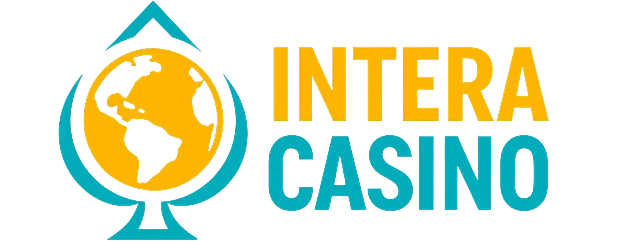Online gambling has grown significantly, with global revenues projected to exceed $100 billion by 2030. As the industry expands, so does the need for robust regulation to ensure player safety, fairness, and compliance with local laws. At https://interacasino.com/, we provide Canadian users with reliable information on online casinos, emphasizing the importance of playing on regulated platforms. This guide explains how online gambling is regulated worldwide, with a focus on Canada, key jurisdictions, and certifying bodies. By understanding these regulations, players can make informed choices for a secure and enjoyable experience.
Why Regulation Matters
Regulation protects players by ensuring:
- Fairness: Games use certified Random Number Generators (RNGs) for unbiased outcomes.
- Security: Personal and financial data are safeguarded with encryption (e.g., SSL).
- Player Protection: Measures like age verification, responsible gambling tools, and dispute resolution are enforced.
- Legality: Operators comply with local laws, reducing risks of fraud or illegal activity.
Unregulated platforms may lack oversight, exposing players to risks like unfair games or data breaches. In Canada, where gambling is provincially regulated, choosing licensed operators is critical.
Worldwide Differences in Online Gambling Regulation
Online gambling laws vary significantly due to cultural, economic, and political factors. As of 2025, based on global data:
- 79 countries regulate online gambling, issuing licenses and enforcing standards (e.g., UK, Malta, Canada’s Ontario).
- 32 countries ban operating online casinos within their borders but allow players to use offshore platforms (e.g., Australia).
- 39 countries fully prohibit online gambling, including playing and operating (e.g., China, India).
- 93 countries have unregulated markets, with no clear laws prohibiting or licensing online gambling (e.g., Mexico, Peru).
These differences create a complex landscape. Most reputable online casinos operate from jurisdictions with established regulatory frameworks, such as Malta, Gibraltar, or Kahnawake (Quebec, Canada). Operators must meet stringent requirements, including licensing fees, anti-money laundering (AML) protocols, and responsible gambling measures, to obtain certifications.
Key Regulatory Jurisdictions
The following jurisdictions are global hubs for online gambling regulation, known for rigorous standards:
- United Kingdom: The UK Gambling Commission (UKGC) oversees one of the world’s strictest markets, enforcing affordability checks, AML compliance, and player protections. Operators face high taxes (e.g., 21% on gross gaming revenue) and regular audits.
- Malta: The Malta Gaming Authority (MGA) is a leading regulator, licensing operators worldwide. It requires robust cybersecurity, KYC (Know Your Customer) processes, and fair play certifications. Malta’s framework attracts operators due to its EU alignment and moderate taxes.
- Gibraltar: Known for strict licensing, Gibraltar’s Betting and Gaming Association ensures transparency and security, appealing to operators targeting European markets.
- Curacao: The Curacao Gaming Authority (CGA) modernized its framework in 2025 with the National Ordinance for Games of Chance (LOK), requiring direct licenses and stricter AML/KYC rules. Application fees start at $66,600.
- Kahnawake (Canada): The Kahnawake Gaming Commission, based in Quebec, licenses online casinos globally, emphasizing responsible gambling and data security. It’s a key hub for North American operators.
- Isle of Man and Alderney: These jurisdictions offer reputable licenses with strong consumer protection and fair play standards, often used by European-focused operators.
These bodies conduct quality-control tests, verify software fairness, and monitor operator compliance to protect players.
Regulation in Specific Regions
Canada
In Canada, gambling is regulated provincially, creating a patchwork of laws:
- Ontario: Since April 2022, iGaming Ontario, under the Alcohol and Gambling Commission of Ontario (AGCO), regulates online casinos, sports betting, and poker. Operators must obtain licenses, comply with responsible gambling protocols, and pay taxes (e.g., 20% on revenue). Players can access both local and offshore licensed sites.
- Other Provinces: British Columbia, Alberta, and Quebec allow regulated lotteries and sports betting but are exploring privatized iGaming models. Offshore sites are permitted if licensed by reputable bodies (e.g., MGA, Kahnawake).
- Federal Law: No federal law bans online gambling, but the Criminal Code prohibits unlicensed operators from operating within Canada. Players face no legal penalties for using offshore sites.
Canadian players should verify operator licenses and ensure platforms use SSL encryption and responsible gambling tools.
United States
The U.S. has a state-by-state approach:
- Legal States: New Jersey, Pennsylvania, Michigan, and Nevada regulate online casinos or poker, with strict licensing via bodies like the Pennsylvania Gaming Control Board.
- Federal Laws: The Unlawful Internet Gambling Enforcement Act (UIGEA) of 2006 restricts illegal gambling transactions but doesn’t prohibit players from using offshore sites. The Wire Act (1961) limits interstate sports betting.
- Emerging Markets: States like Texas and Georgia are considering legalization in 2025, potentially expanding the market.
Players should check state laws and choose licensed platforms to avoid risks.
Europe
Europe’s regulatory landscape varies:
- United Kingdom: The UKGC enforces strict licensing, high taxes, and player protections like affordability checks and self-exclusion registers.
- Malta, Sweden, Spain: These countries have robust frameworks with licensing bodies (e.g., MGA, Spelinspektionen, DGOJ) ensuring transparency and responsible gambling. Italy bans gambling ads, while Sweden restricts bonuses.
- France: The Autorité Nationale des Jeux (ANJ) allows sports betting, poker, and horse racing but bans online casino games, leading to a black market.
- Germany: The 2021 State Treaty on Gambling permits online casinos but varies by state, with high taxes and strict rules.
EU countries balance autonomy with Treaty on the Functioning of the EU (TFEU) freedoms, allowing cross-border services if compliant.
Other Regions
- Australia: The Interactive Gambling Act (2001) bans local operators but allows offshore licensed sites. Players face no penalties.
- Latin America: Brazil fully regulated online gambling in 2025, with licenses and 18% taxes. Colombia and Mexico have established markets, while Argentina regulates by province.
- Asia: Most countries (e.g., China, India) ban online gambling due to cultural or religious reasons, pushing players to unregulated offshore sites. The Philippines (PAGCOR) and Macau are exceptions with regulated markets.
- Africa: South Africa and Kenya regulate some gambling, but online casinos remain largely unregulated. South Africa is considering legalization in 2025.
Certifying Bodies and Standards
Online casinos are certified through three main avenues to ensure quality, safety, and fairness:
Government or Jurisdictional Licensing
Reputable jurisdictions (e.g., UKGC, MGA, Kahnawake) issue licenses requiring:
- Compliance with local laws, including AML and KYC protocols.
- Responsible gambling measures (e.g., deposit limits, self-exclusion).
- Regular audits for financial transparency and game fairness.
- High licensing fees (e.g., $66,600 in Curacao, up to €500,000 in Malta).
Operators display license details on their homepage (e.g., footer) as a trust indicator. In Canada, check for AGCO (Ontario) or Kahnawake licenses for local relevance.
Security Testing Agencies
Independent agencies verify data protection:
- SSL Encryption: Ensures secure transactions, matching bank standards. Look for “SSL Secured” or padlock icons.
- Audits: Companies like VeriSign or Sectigo test encryption and cybersecurity to protect personal/financial data.
- GDPR Compliance: In Europe, operators align with data protection laws; Canadian platforms follow PIPEDA.
Players should confirm SSL certification on casino sites to ensure safety.
Software Testing Agencies
Third-party testers ensure game fairness:
- eCOGRA: Certifies RNGs, payout rates, and software integrity, ensuring unbiased outcomes.
- Technical Systems Testing (TST): Canadian-based, tests game algorithms and fairness.
- iTech Labs: Verifies RNGs and compliance with regulatory standards.
These seals, often displayed in website footers, confirm fair play. For example, eCOGRA’s approval means payout rates (e.g., 95% RTP) are independently verified.
Canadian Regulatory Focus
In Canada, regulation emphasizes:
- Player Protection: Tools like deposit limits, time-outs, and self-exclusion (e.g., Ontario’s iGaming single customer view framework).
- Age Verification: Strict checks to prevent underage gambling (gambling age 19+ in most provinces).
- AML/KYC: Operators verify identities to combat fraud and money laundering, aligning with Financial Transactions and Reports Analysis Centre of Canada (FINTRAC) rules.
- Taxation: Ontario operators pay 20% on revenue; offshore sites may not contribute locally but are legal for players.
Players should choose platforms licensed by reputable bodies (e.g., AGCO, MGA, Kahnawake) and check for SSL and eCOGRA certifications.
How to Choose a Regulated Casino
To ensure safety:
- Verify Licensing: Check the casino’s footer for UKGC, MGA, or Kahnawake seals; confirm via the regulator’s website.
- Look for Certifications: Seek eCOGRA, TST, or SSL badges for fairness and security.
- Read Reviews: InteraCasino.com only recommends fully licensed, audited casinos.
- Check Responsible Gambling Tools: Ensure options for limits or self-exclusion are available, as outlined in our Responsible Gambling guide.
- Confirm Payment Security: Look for secure payment methods (e.g., Interac, PayPal) with encryption.

